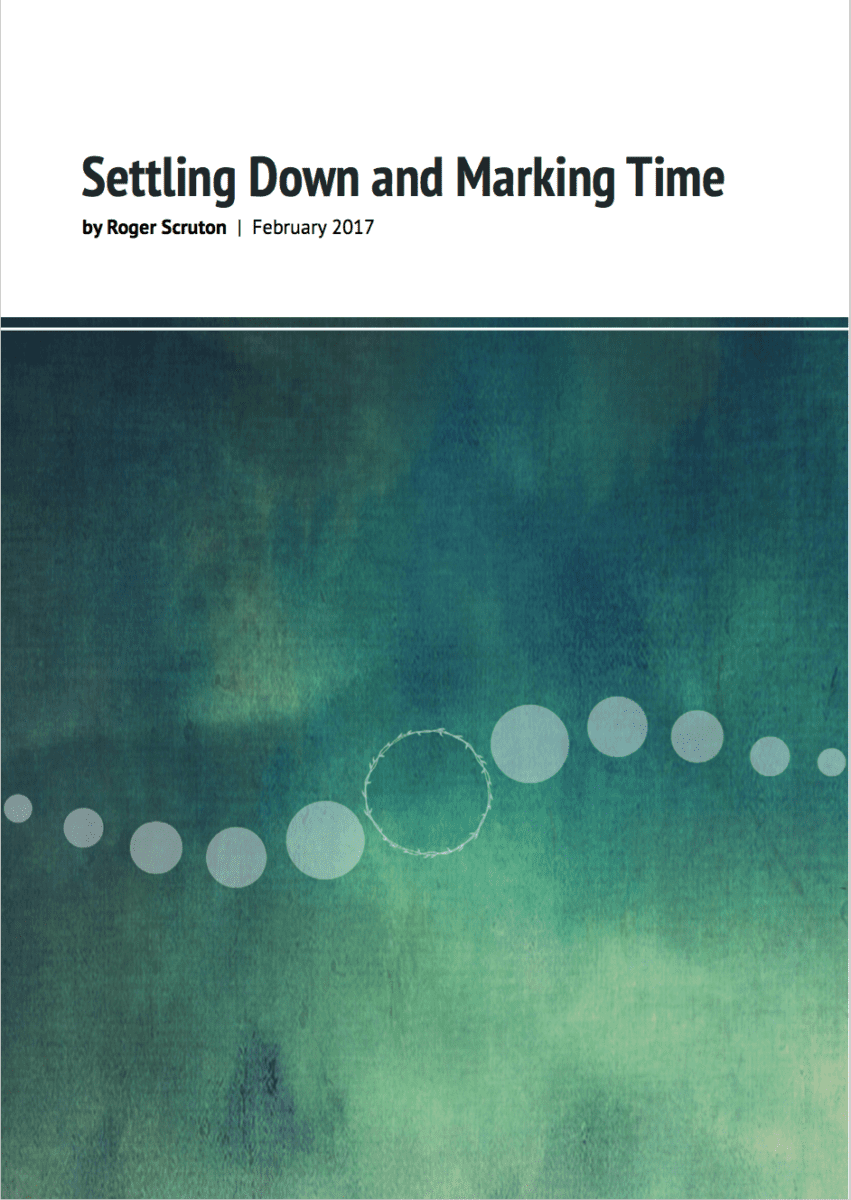The Meanings of ‘home’ | A response to Roger Scruton
by VICTOR ANDERSON
Roger Scruton’s paper usefully enlarges the scope of our discussions in CUSP, bringing greater depth and a wider range of concepts to bear on the question of “sustainable prosperity”, crucially including belonging, identity, and attachment. However despite this wide scope, there is inherent in his arguments at the same time a narrowing down, turning them into a philosophical justification for nimbyism.
‘Not in My Back Yard’ – the ‘nimby’ response to proposals to build new roads, houses, airport terminals, nuclear power stations, and so on – has generally been seen as a selfish response, the defence of a small group of people against the interests of the wider society. What this paper achieves is an explanation of why that is so often unfair.
If we each defend our piece of the Earth, its argument implies, and all those acts of protection and conservation are put together, the Earth as a whole will be protected. More than that: there is really no other option, because people are motivated far far more by the desire to protect what feels to them like ‘home’ than by any concern about what is far away and ‘foreign’.
A great deal of good can be achieved with such an approach – neighbours might save a local park, noise from aircraft flying at night could be prevented, many local problems might be resolved in favour of environmentalism. Scruton’s concept of ‘oikophilia’ – love of home – provides the sense of dignity that nimbyism very often deserves.
However although love of home can be entirely positive, it can also easily shade into antagonism towards others who either are outside of ‘home’ or located inside but not seen as belonging. There is no hint of any of that in Roger Scruton’s paper, but in the political atmosphere of 2017 this is a danger it is a high priority to be particularly careful about.
There is also here an averting of attention away from economic forces, so that architects and planners get blamed for urban disasters, but property development companies are not mentioned, and agreements in the market are seen as entirely freely arrived at rather than as largely coerced through enormous disparities in the distribution of wealth.
What ultimately makes this a gloomy philosophy in its implications is not any of that, but the sheer enormously wide gulf between the domestic and local attachments to ‘home’ and the major problems facing the world now, including the sustainability problems, such as what is happening to the global climate. The only type of long-term project which I think offers any hope of responding to this is one which seeks to enlarge the scope of what it is that people identify as ‘home’, so that it becomes as large an area as possible, and ideally the entire world.
Scruton’s paper deals in the concepts we need to imagine that – belonging, identity, and attachment – but stops at square one, offering no means of moving from the little home of current oikophilia to the potentially more ambitious and open-hearted big home oikophilia which is urgently needed.
Of course we can each try to protect our own localities and immediate surroundings. But there is in reality no “invisible hand” that will make all that add up to the global change needed if there is to be any chance of sustainable prosperity coming about.

